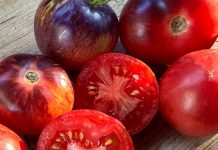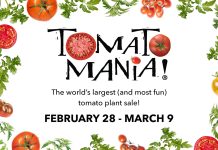Looking up at the rows and rows of supplements available at my local market is a mind-bending experience.
Vitamin, herb, mineral, fatty-acid, antioxidant, enzyme and electrolyte names all tumble out from their labels and make me wonder how in the world does our body do it?
I mean, all those ingredients nestled in the bottles lining the shelves are cruising inside our body doing VIP stuff. If I could x-ray in live video format and watch my body at work, I could see the vitamin B’s roaming around my liver helping it detox or the digestive enzymes grinding away at the pre-digested food.
The phospholipids from lecithin are probably jostling each other on who goes first to help maintain my neural receptors so I can stand in complete coherence in the aisle pondering existence.
It’s an age-old question, but needs to be asked, “Do we need to supplement the diet?” Remember the Vitameatavegamin scene? Lucy after many tablespoons of the stuff (23% alcohol content mind you) is babbling and mixing words amongst each other, “Do you pop out at parties? Are you un-poopular? (I love it when she adds, “Well, are you?”)
Supplementing the body is classic comedy in my opinion. Because, technically, one should not have to supplement the body with chemically constructed stuff that obviously should be obtained in its natural state from eating good foods. Yet, the laugh of the matter is that obtaining good foods is becoming more and more of a challenge. Foods that are not bio-engineered or treated with pesticides or laden with some trademarked, chemically made additive that people are duped into believing might be better than the ingredient they are trying to avoid.
So the fact of the matter is, in order to bridge the gap between the nutrient-deficient foods and our body’s needs, we are more or less forced into supplementing the diet. Just look at cereals, milk, bread – all “fortified” with vitamin and minerals. So unless you are eating 100% homegrown foods where you are in control of what the animals eat or the soil in which the vegetables are grown, I’d say supplementing is not a bad idea.
Just beware the “tonics” that proclaim miracle cures. Always read the labels. Liquids tend to have preservatives (hence the alcohol in I Love Lucy’s tonic) for longer shelf life, so beware. Pressed tablets have a lot of extra, non nutritional binders, and though cheaper, might not break down as easily in the body. For better absorption (especially those with digestive problems) choose capsules.
Another tip: gelatin capsules are made from boiling the skin, tendons, and ligaments of animals. Choose Vcaps (vegetarian capsules) instead.
I’d like to point out another important reason for supplementing: the human body is fallible. Its cells sometimes makes mistakes, miss the mark, fail to deliver, go awry and we just don’t know exactly why. So perhaps a safety measure in the diet through supplements is not a bad idea.
Even though you make sure you’re eating correctly, giving the body fresh whole foods, clean water and the respect it deserves by not indulging in excesses, take the supplements.
OK, one more thing to chew on. According to Wikipedia, the body experiences about 10,000 trillion cell divisions in a lifetime. Which equates to about 342 million cell divisions a day. Amazing. And if you are right now breathing, standing, walking, laughing, eating, doing all the normal things a body does while all the unseen bodily processes do their thing, it’s not just amazing, it’s simply miraculous.




